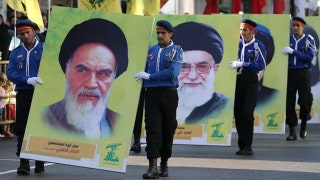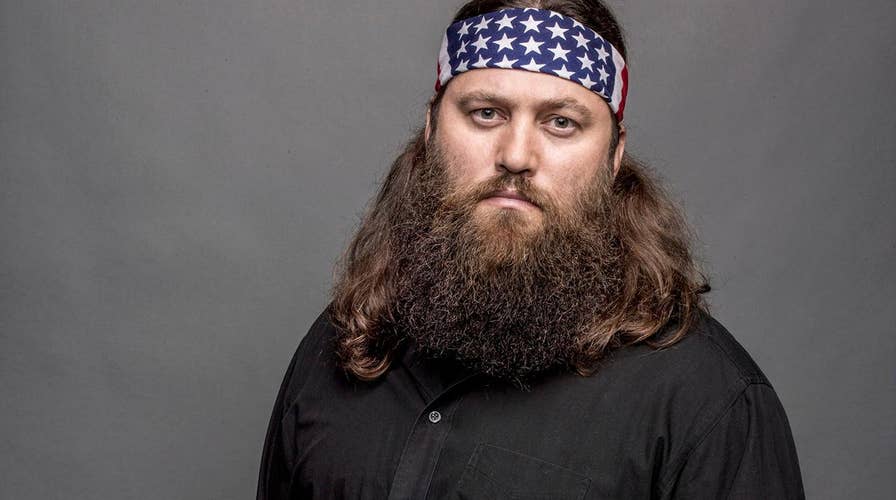Willie Robertson on new book ‘American Entrepreneur’
Willie Robertson on his new book ‘American Entrepreneur,’ whether he’d get into politics
Diligent hands will rule.
– Proverbs 12:24
As long as there’s been an America, there have been entrepreneurs.
We started businesses on our kitchen tables and living room couches, and in our backyards, farms, and garages. Sometimes we started with nothing, and sometimes we got a stack of seed money from a friendly bank or family member.
We sweat, strain, cry, laugh, and work our tails off to make something from nothing and build a better life for our families and ourselves. Sometimes we’ve gone bust and sometimes we’ve succeeded far beyond our wildest dreams. Even the biggest companies start out small, and we’re the ones who started them.
In the process, we founded this nation, built it into the world’s economic superpower, and inspired the world with our achievements.
America has always been a land of business visionaries, risk-takers, and doers, of growers, makers, wheeler-dealers, traders, sellers, merchants, and go-getters. American economist William Baumol described an entrepreneur as “the individual willing to embark on adventure in pursuit of economic goals.” Management expert Peter Drucker described entrepreneurship as “the act that endows resources with a new capacity to create wealth.”
According to historian John Steele Gordon, “The first patent awarded to an American resident was given to Joseph Jenks in 1646 for a device that improved the manufacture of edged tools, such as sickles. It was the beginning of the ‘Yankee ingenuity’ that has characterized America’s economy ever since, from that first machine tool to bifocal glasses, the cotton gin, automated flour mills, the high-pressure steam engine, interchangeable parts, the McCormick reaper, the oil industry, the airplane, Coca-Cola, the affordable automobile, the digital computer, and Twitter.”
America was founded, fed, financed, nurtured, and sustained, in large part, by entrepreneurs.
The spirit of America is the spirit of entrepreneurship – of risk, innovation, ingenuity, grit, and perseverance.
The history of America is largely the history of businesses, most of which started out small and sometimes stayed that way, but sometimes grew far beyond the wildest dreams of their founders.
My inspiration is God, my family is my life, and my business is my family.
I am the CEO of a family business that my father started 46 years ago in a dilapidated backyard shed when we had nothing except a life of dirt-poor poverty.
It’s a business that my mother helped run, my brothers and I grew up in, and my wife, in-laws, and extended family and friends have helped build into a multimillion-dollar powerhouse.
Today that business has launched three successful TV shows, including "Duck Dynasty," the most-watched reality TV show in history, sold tens of millions of dollars of products and merchandise, generated hundreds of jobs, and entertained and inspired many millions of people the world over.
But our American dream started out smack in the middle of an American nightmare.
My father, Phil, grew up not far from where we all live today, in a house with no running water and no electricity, and a toilet two hundred feet back in the woods. He attended Louisiana Tech on a football scholarship, started as quarterback over Super Bowl champion-to-be Terry Bradshaw, smoked dope and listened to lots of Jimi Hendrix, married my mother, Miss Kay, when she was 18-years-old and he was 20, got a master’s degree in education, then decided he’d rather hunt ducks than be a teacher. To supplement the family income and just barely scratch out a living, Phil became a commercial fisherman, selling his own net-caught flathead catfish for 70 cents a pound.
One day in 1972, the year I was born, Phil had an idea. He was fed up with the store-bought duck calls he used during duck hunting season. These things don’t sound at all like real ducks, he thought. I can build a better duck call.
So he disappeared into the ramshackle work shed in the back of our property and started tinkering around with materials and tools. Weeks went by. Eventually, he worked out a sweet design made of two separate cedar-tree-cut reeds rather than the usual one, plus the ingenious twist of carving a dimple in the reeds to hold them separate. It was a design so special that he got a patent for it. He put a lot of hard work and patience into his duck call. He just wanted to make a great duck call for the average hunter.
The result was the backwoods Stradivarius of duck calls, a duck call that sounded more like a duck than a duck did, a sound that reached far up in the sky and invited ducks to come on down, relax, and spend some quality time with new friends, who actually turned out to be the business end of a shotgun. Ducks loved the sweet music the instrument made, and so did the hunters.
To buy a lathe and other gear, Phil took out a $25,000 loan from the Howards, a family of successful local retail entrepreneurs (who eventually became my in-laws), and started cranking out duck calls one by one. My mom pitched in to run the business, handling orders, paying the bills, and balancing the books on the living room couch. Phil and Miss Kay laid the foundation for our family’s success. That first year, they made $8,000, and the Duck Commander Company was born. A business was born.
Then, disaster struck.
Just as the duck call business was slowly taking off, Phil decided to make Satan his business partner. There’s no other way to describe what happened to him. Phil chugged whiskey straight from the bottle, came home drunk, got in fights, operated a honky-tonk, and kicked the family out of our trailer home for a while. One night he got in a fight with the honky-tonk’s owner and his wife, beat up both of them, and threw the lady clear across the bar. He snuck out the back door to escape the police and hid out in the woods to evade the long arm of the law. He spent most of the next eight years as a full-blown heathen, and my parents’ marriage started falling apart.
One day, a minister showed up out of the blue, gave my dad a Bible, and told him to put his life in the hands of Jesus. My father turned him down. Until four months later, when he decided it was a really good idea. He begged Miss Kay to take him back, and she did, provided that he stop drinking, lose his old friends, and put his life in the hands of the Lord. He did, and has led a clean life ever since.
As a family, we turned all those mistakes and negative energy into a positive, and we built our business on it.
Excerpt from “AMERICAN ENTREPRENEUR” by Willie Robertson and William Doyle. Copyright © 2018 by Willie Robertson and William Doyle. Used with permission by William Morrow/HarperCollins. All rights reserved.









































